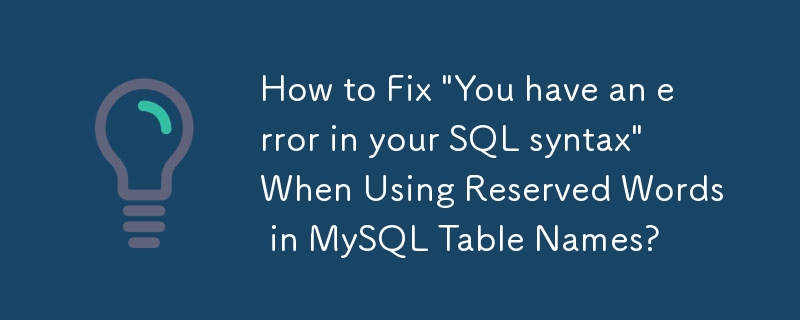

Troubleshooting MySQL Syntax Errors: The Case of Reserved Keywords
Creating multiple MySQL database tables via PHP scripts often results in the frustrating "SQL syntax error" message. A frequent culprit is the unintentional use of MySQL reserved words as table or column names.
This tutorial focuses on resolving such errors, specifically addressing issues arising from using the reserved word "order" as a table name. "order" is a keyword in MySQL, controlling data retrieval sequencing, thus causing syntax conflicts.
The solution involves escaping the reserved word using backticks. The corrected SQL statement is:
<code class="language-sql">$sql = "CREATE TABLE `order`(
order_id INT UNSIGNED NOT NULL AUTO_INCREMENT,
user_id INT UNSIGNED NOT NULL,
transaction_id VARCHAR(19) NOT NULL,
payment_status VARCHAR(15) NOT NULL,
payment_amount DECIMAL(6,2) UNSIGNED NOT NULL,
payment_date_time TIMESTAMP NOT NULL DEFAULT CURRENT_TIMESTAMP,
PRIMARY KEY (order_id),
FOREIGN KEY (user_id) REFERENCES user (user_id)
)ENGINE=InnoDB DEFAULT CHARSET=utf8";</code>As a best practice, avoid using reserved keywords entirely. Choosing descriptive, non-reserved names improves database schema readability and prevents future syntax problems.
The above is the detailed content of How to Fix 'You have an error in your SQL syntax' When Using Reserved Words in MySQL Table Names?. For more information, please follow other related articles on the PHP Chinese website!




